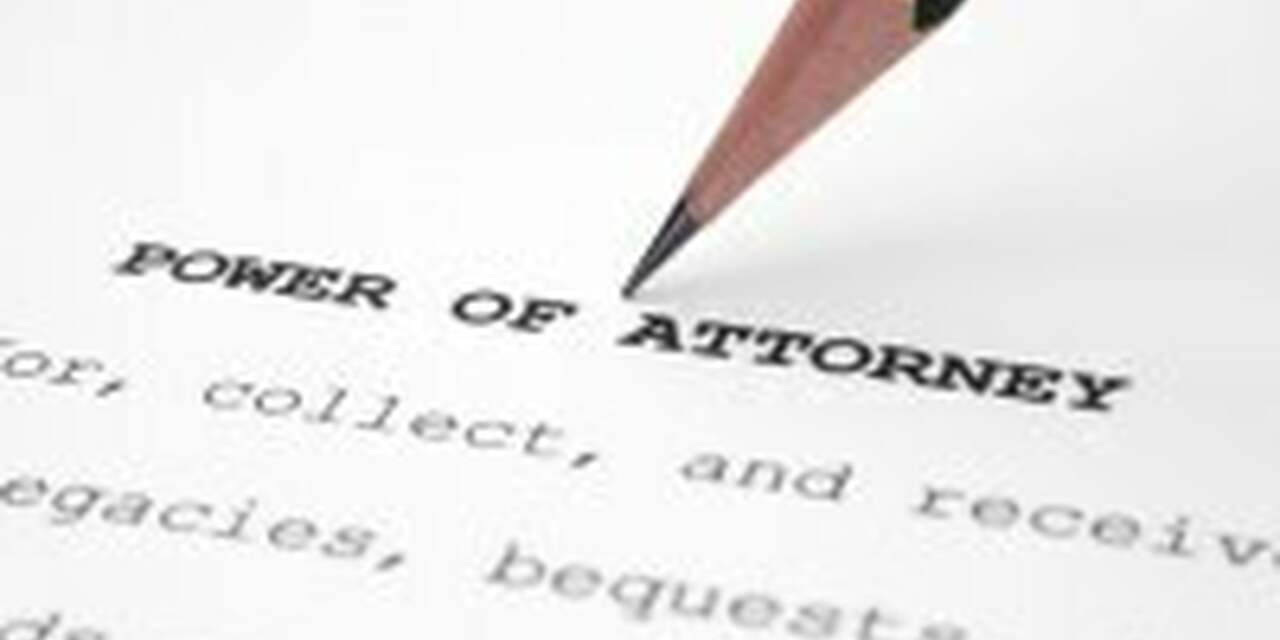A Power of Attorney is a legal document that gives a trusted person (the Attorney), the legal authority to act for you and to make certain legally binding decisions on your behalf.
Below are 6 top questions dealing with Powers of Attorney.
1. When is a Power of Attorney particularly useful?
- to relieve yourself of the day to day demands of financial paperwork and record keeping;
- as a safety net when travelling or to allow someone to handle your affairs in your absence;
- to avoid burdening family or friends with the responsibility of looking after your affairs; or
- if you are unable to properly manage your financial affairs.
2. Does the Attorney need to be a lawyer?
No, the person appointed does not need to be a lawyer - you can appoint anyone you want. However, you should give careful consideration to who you appoint as you are providing them with considerable power over your affairs.
Ideally, the Attorney should:
- have integrity;
- be willing to act in that capacity;
- be competent in managing finances;
- be able to act in a business-like manner;
- be able to spare the time necessary for the task;
- live relatively close to you;
- be agreeable to respecting the confidentiality of your affairs; and
- be impartial and not have a conflict of interest between your affairs and theirs.
3. Are there different types of Powers of Attorney?
Yes, a General Power of Attorney which is:
- only valid while you have legal capacity;
- useful if you are going away for an extended period and you do not want the authority to continue should you lose legal capacity; and
- usually drawn up for a specific purpose with specific or general powers.
And an Enduring Power of Attorney (EPA) which:
- continues to be valid even if you lose legal capacity due to disability or illness;
- may empower your attorney to make financial, property, lifestyle and health decisions;
- may be activated when required or upon loss of legal capacity; and
- allows your Attorney to commence or to continue to manage your affairs even though you have become unable to give lawful instructions.
Additional information about the different types of Powers of Attorney can be found
here.
4. Is it better to have more than one attorney?
We often recommend that you consider having more than one Attorney as it gives you more flexibility.
Some examples to illustrate why it is helpful to include siblings who should act together, or you are unsure if one should act on their own, or to allow the power to continue if one Attorney dies or cannot act. This also applies if you appoint a spouse and a child as an alternative in the event the spouse dies. You can also appoint Attorneys to act “jointly” or “severally”.
5. Should I pay my attorney?
It is not necessary to pay the Attorney and it would normally only be considered if the Attorney is a professional, such as a lawyer or accountant.
6. How do I know if the person has sufficient mental capacity to make a power of attorney?
There is no simple formula but, in general terms, they must be able to:
- understand the major consequences of a decision;
- take responsibility for making that choice; and
- make a choice based on the risks and benefits that are important to them.
If there is any doubt about capacity, it’s best to get in touch with a doctor and ask for a written opinion. If this is done, it is wise to have the Power of Attorney signed on the same day as you get the medical report so there can be no subsequent claim that the appointment was invalid.
Conclusion
The needs for a Power of Attorney can be numerous. In case of an accident, sudden illness, planned or unexpected absence, or when you just can’t cope, you may need someone to manage your financial affairs. So it doesn’t matter if you are old or young, in business or not, if you do a lot of travelling or not, there are great benefits in having a Power of Attorney.
However, in our experience, many people are unaware of the substantial risks of a Power of Attorney. Because the Attorney (often) has full control over your finances, there is a significant risk of loss if the Attorney acts dishonestly.
To find out more about Powers of Attorney and their benefits and risks please
contact us. Alternatively, visit the website of the
Public Trustee for more information.
**This article was originally posted on 17 August 2016 and has been significantly updated and revised**

